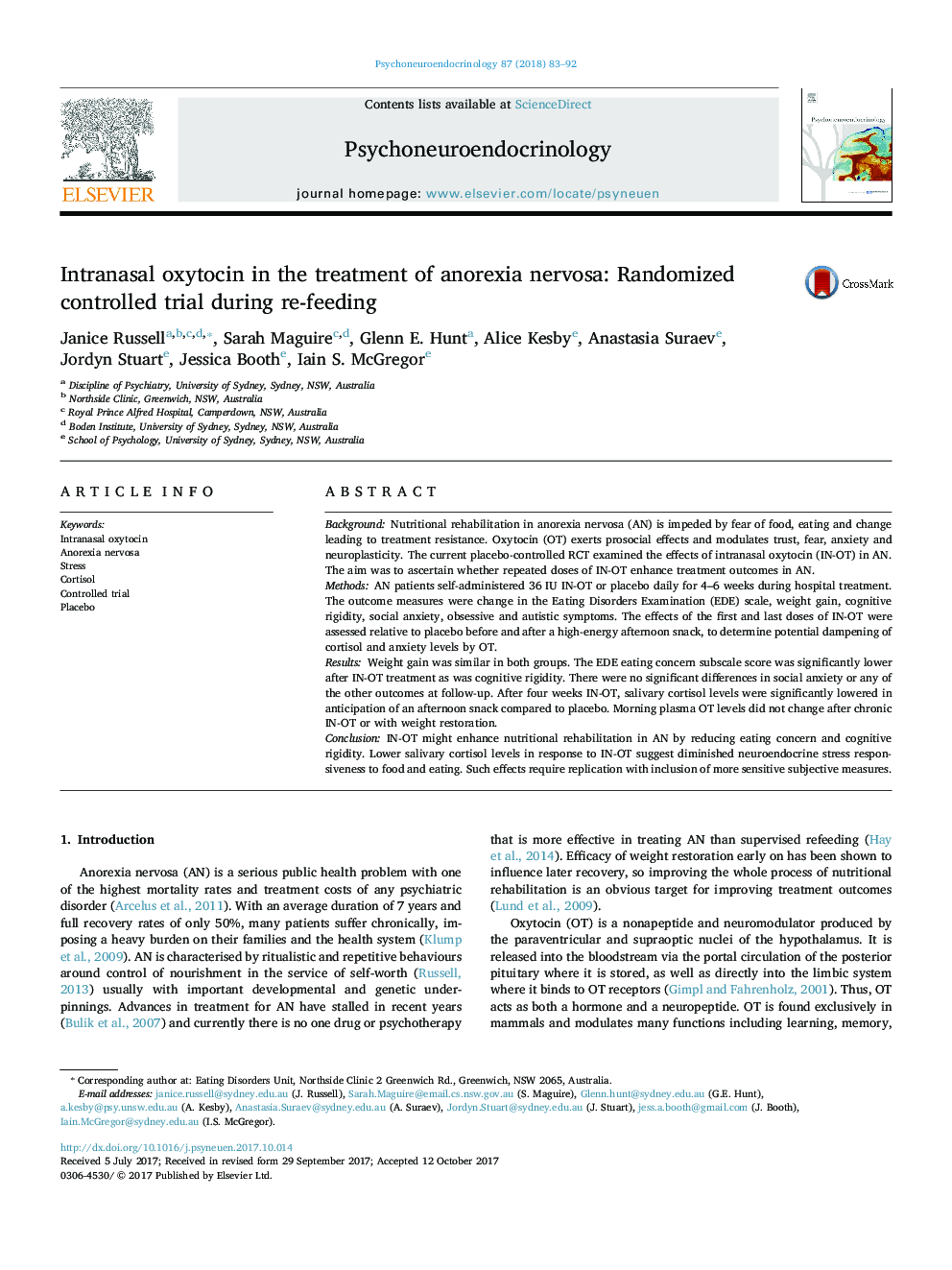| کد مقاله | کد نشریه | سال انتشار | مقاله انگلیسی | نسخه تمام متن |
|---|---|---|---|---|
| 4934156 | 1433956 | 2018 | 10 صفحه PDF | دانلود رایگان |
- IN-OT enhanced eating concern after 4-6 weeks of daily treatment during re-feeding.
- The present study found IN-OT was well tolerated and safe.
- Salivary cortisol levels were lower in anticipatory response to an afternoon snack.
- Plasma OT levels did not change after chronic IN-OT or with weight restoration.
BackgroundNutritional rehabilitation in anorexia nervosa (AN) is impeded by fear of food, eating and change leading to treatment resistance. Oxytocin (OT) exerts prosocial effects and modulates trust, fear, anxiety and neuroplasticity. The current placebo-controlled RCT examined the effects of intranasal oxytocin (IN-OT) in AN. The aim was to ascertain whether repeated doses of IN-OT enhance treatment outcomes in AN.MethodsAN patients self-administered 36 IU IN-OT or placebo daily for 4-6 weeks during hospital treatment. The outcome measures were change in the Eating Disorders Examination (EDE) scale, weight gain, cognitive rigidity, social anxiety, obsessive and autistic symptoms. The effects of the first and last doses of IN-OT were assessed relative to placebo before and after a high-energy afternoon snack, to determine potential dampening of cortisol and anxiety levels by OT.ResultsWeight gain was similar in both groups. The EDE eating concern subscale score was significantly lower after IN-OT treatment as was cognitive rigidity. There were no significant differences in social anxiety or any of the other outcomes at follow-up. After four weeks IN-OT, salivary cortisol levels were significantly lowered in anticipation of an afternoon snack compared to placebo. Morning plasma OT levels did not change after chronic IN-OT or with weight restoration.ConclusionIN-OT might enhance nutritional rehabilitation in AN by reducing eating concern and cognitive rigidity. Lower salivary cortisol levels in response to IN-OT suggest diminished neuroendocrine stress responsiveness to food and eating. Such effects require replication with inclusion of more sensitive subjective measures.
129
Journal: Psychoneuroendocrinology - Volume 87, January 2018, Pages 83-92
